2-3 April 2025
Get great things done together
Is Agile Still the Answer? Lessons from Real World Agility
Networking – why you should start NOW?
The Real DDD: Delusion-Driven Development
Why Vocabulary Matters
Can Agile and traditional project management be compatible?
What does quantum physics have in common with Agile?
The 4 Endings of a Retrospective
Govern your Agility
Porozmawiajmy o Collaboration Debt
For effectiveness, Agile was never the answer
Is Agile still the answer?
Overcoming Resistance: Implementing UX Practices in Established Agile Teams
Unveiling the Business Value of Technical Debt – Why It Really Matters?
Mind the gap: Executive Agile – bringing the Gap Between Agile, Engineering, and Senior Leadership
Haunted Project Survival Guide
Team Assessments: the Good, the Bad and the Ugly
Bridging Cultural Gaps: Collaboration Strategies for International Teams
From Agile to Outcome-Driven
Cycle Time is the only metric that counts
Is constant effectiveness analysis productive or am I just good at avoiding real work?
Learn the Culture first, then go Agile!
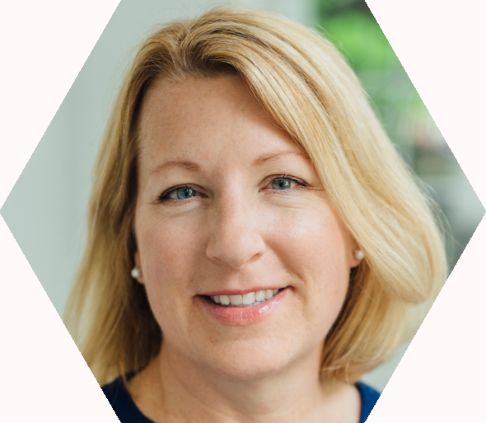
Jenni works as a leadership guide at Denmark-based goAgile. She is recognized for her work in change leadership and pragmatic Agile. Jenni trains, consults and speaks worldwide about leadership, empowering teams, and how to take advantage of how our brains function to create work environments where people thrive. She runs Intent-Based Leadership courses together with award-winning author of Turn the Ship Around! L. David Marquet, and is co-author of TOGETHER: How leaders involve & engage people to get great things done.
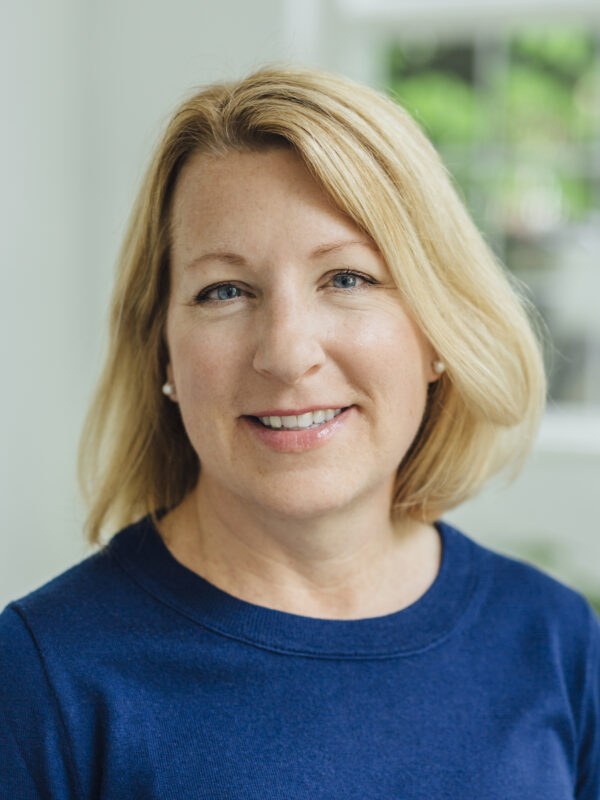
Get great things done together
Are you struggling to inspire responsibility and deliver high-quality results in your organization? In an era where Agile is often questioned, the answer is simpler than you think: do it together. The collaborative principles of Agile remain highly effective; it’s the rigid processes that often get in the way. When we shift the focus to our people and on working better together, we become more effective.
In this session, discover four Involve & Engage Principles for high-performing teams: Understand Together, Plan Together, Validate Together, and Reflect Together, along with the neuroscience that supports them. You’ll learn what it takes to find solutions together, and how involving and engaging leads to happier, more motivated people who get great things done.
Jenni Jepsen works as a leadership guide at Denmark-based goAgile. By focusing on the value to be achieved and understanding where clients are and where they want to go, Jenni works closely with them to increase organizational effectiveness, motivation and results. goAgile’s point of difference is to help people in organizations help themselves in this process, and Jenni has proven experience supporting people so they thrive through change. In this way, organizations transform into places where people achieve real value and delight customers every day.
Jenni is recognized for her work in change leadership and pragmatic Agile. She integrates neuroscience concepts into her coaching, training and sparring with leaders at every level. Jenni consults, writes and speaks worldwide about leadership, teams, and how to take advantage of how our brains function to get optimal thinking in the workplace. She runs Intent-Based Leadership courses together with award-winning author of Turn the Ship Around! L. David Marquet, and is co-author of TOGETHER: How leaders involve & engage people to get great things done.
LinkedIn: https://www.linkedin.com/in/jennijepsen/
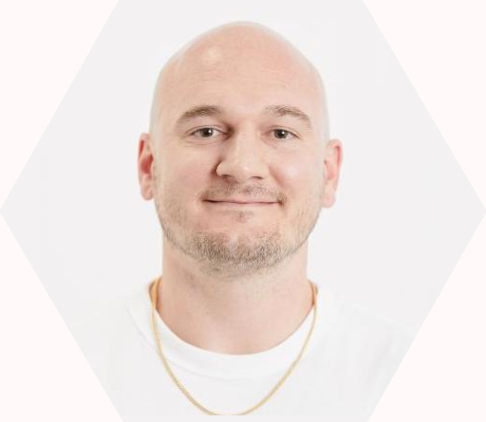
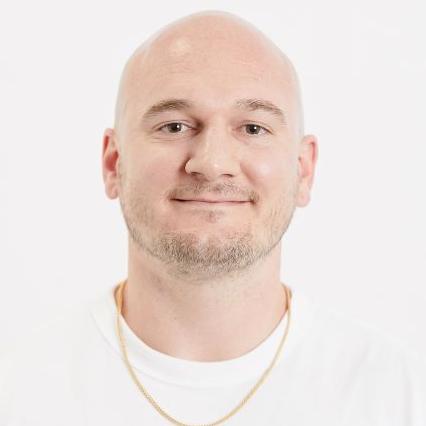
Is Agile Still the Answer? Lessons from Real World Agility
Agile promised effectiveness, but has it delivered? Drawing from my new book, Real World Agility, I will share my experiences over the last 10+ years across numerous large organisations where agility worked in being more effective, but also where it didn’t and how I got it wrong. We’ll explore what I believe are the four themes that agility comes down to, and how we can truly evidence if we are being more effective in our way of working.
Nicolas is an agility coach, dedicated to helping organisations and teams focus on outcomes via a framework agnostic approach when adopting new ways of working. He is incredibly passionate about data and using this for a data-driven approach when it comes to coaching at all levels of the organisation and demonstrating the impact agility has. Currently Nicolas is Lead Agile Coach at ASOS.com, where their team of three coaches steer the direction around agility for a technology organisation of roughly 100 teams.
Prior to ASOS he worked in agility roles at a number of large organisations such as Nationwide Building Society, PwC and Royal Mail. Outside of work Nick likes to blog as well as work on open-source projects where he offers a variety of free data visualization templates that can connect to common tools (Jira, Azure DevOps) that organisations use, his hope is that by making it free it leads to better ways of working!
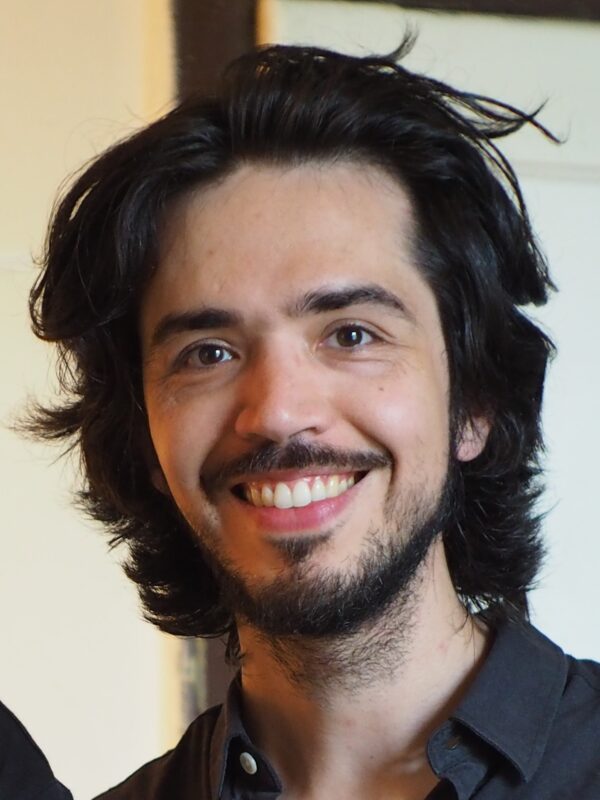
Gustavo
Coutinho Fernandes

Gustavo is a Project Manager at Motorola Solutions. He has a diverse background in telecommunications, including roles as a People Manager, Scrum Master, system tester, and requirements writer. The initial years of his career took place in Brazil, and he moved to Krakow, Poland, in 2017.
He is passionate about Systems Thinking and high-performing teams and enjoys rock climbing, music, photography, and cooking in his free time.
The battle between Traditional and Agile is nothing new in engineering environments. Even though there are significant differences between them, they share a lot of context.
I’ve had the Scrum Master hat for 4 years. For the last 2 years, I have been wearing the Project Manager one. I’ve realized that the many different layers of an organization have different needs and a “one size fits all approach” leads to conflicts and pushback. In this presentation, we will check the overall role’s objectives of a scrum master and project manager, their environments, demands, and tools.
Having a better understanding of the organization’s needs should help build a more realistic expectation on the areas that can be changed. Requirements (sometimes implicit ones) must be considered for the processes and changes to have successful outcomes!
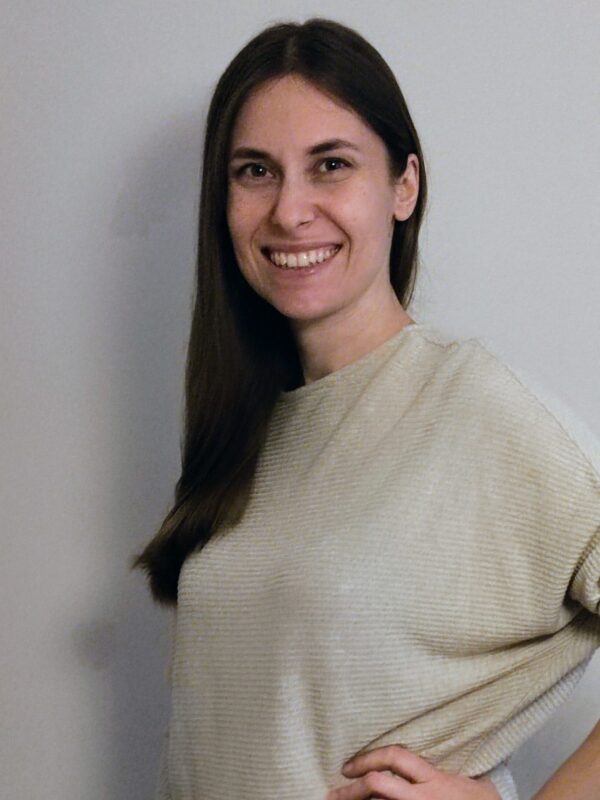
Magdalena
Droździewicz

Agile Coach and Scrum Master, focused on unlocking Teams’ and individuals’ potential. I believe every Team and Organization has the potential to become highly effective. It’s just the matter of finding what’s blocking us and dealing with those impediments one at a time. Privately a mega-fan of Harry Potter and Lego bricks.
Complaining about burndown charts, estimation, ineffective meetings etc. – we often consider Agile as something outdated, wasteful and problematic. So, is Agile still the answer?

Paweł
Feliński

Paweł Feliński is a management consultant who specialises in strategy execution, new product development, and business transformation. He is purpose-driven, pays attention to detail, and takes a pragmatic approach to problem-solving. He designs and occasionally delivers training courses. All this is to help clients become better managers, inspiring leaders, and accomplished people. On a daily basis, Paweł is a managing director at the consultancy Meirik Ltd.
Paweł has acquired rich experience in over 15 countries on four continents in numerous industries, including banking, construction, education, health, insurance, IT, oil and gas, pharma, retail, and telecom. His recent engagements have been focused on public healthcare and designing service organisations.
Have you noticed how many people treat Agile as a great promise? A story of valuable products, effective teams, efficient processes, satisfied clients, and happy happy people? But how often have you seen this promise fulfilled in practice? All answers are applicable. However, if you find yourself even slightly sceptical, this talk is for you.
This session offers a critical perspective on Agile and its implementation. Rather than focus on what good Agile looks like, I will explore why it often doesn’t. We will begin by uncovering an uncomfortable truth about organisational effectiveness and efficiency. I will then analyse situations where Agile stops fulfilling its purpose, supported by real-world examples from my business experience. Together, we will examine how much agility is in Agile by discussing topics commonly overlooked in its applications, such as challenges in scaling, the role of data in maintaining effectiveness, strategic agility, governance, and procurement.
Finally, I will share my perspective on restoring effectiveness in organisations grappling with Agile’s limitations. I will demonstrate how shifting from a process—and team-focused Agile approach to outcome-driven organisations—adopting an outside-in perspective on the products and services they deliver—can reinvigorate performance. In this broader operating model, Agile ways of working become just one part of the solution, while the others unlock the organisation’s potential to finally fulfil the great promise of agility.
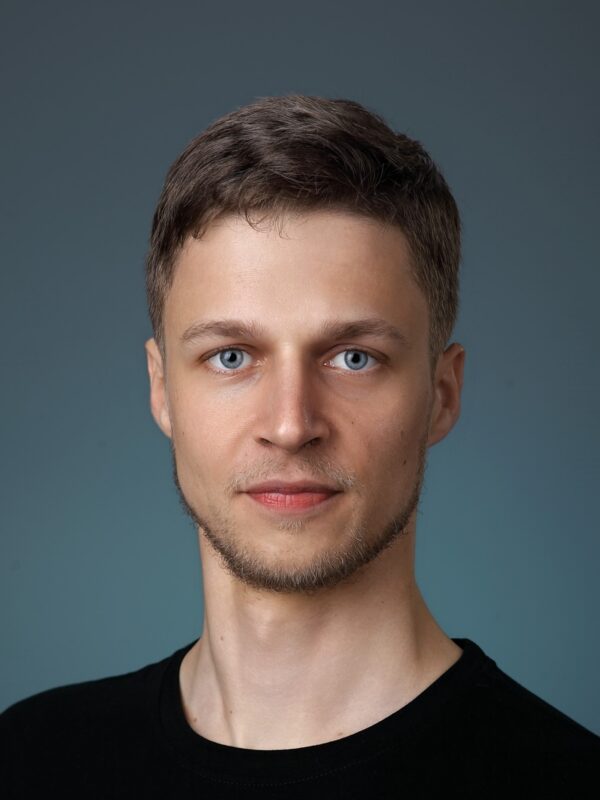
Wojciech
Grabowski

In his daily work as a Product Manager and in his private life, Wojtek never stops digging one shovel deep.
Every creature, creation and excel sheet carries a mystery, so 5 Whys method should be just a starter in a deeper discovery of our everyday reality.
Wojtek is also part of the Toastmasters club, for speakers and leaders, where he hones his presentation skills to deliver the pearls he has dug up, in an easy and digestible way.
In this lightning talk, I’ll try to explain how effectiveness was perceived by ancient and modern philosophers and what we should be careful about, before we start rebuilding our habits.
– What is effectiveness?
– Who should decide how to measure it?
– Who pays for my effectiveness?
I will answer these types of questions with… some extra questions!
With the quote “The unexamined life is not worth living” in heart, I would like to inspire you to talk and think also at a deep level of primary assumptions.

Marcin Aks
Grochowina

Prywatnie: dużo jem, chodzę w czapkach, kolekcjonuję płyty – głównie winylowe i nadużywam słowa “uszanowanko”.
Czy zastanawialiście się kiedyś, dlaczego praca w zespołach często wydaje się trudniejsza, niż powinna? Spotkania, które zamiast rozwiązywać problemy, tylko je mnożą. Procesy, o których nikt nie wie, czemu w ogóle mają służyć. Zgrzyty i napięcia, które powoli wysysają energię z zespołu. To wszystko symptomy Collaboration Debt.
Tak jak dług techniczny powstaje z krótkowzrocznych decyzji, tak dług współpracy rośnie, gdy nie dbamy o relacje, komunikację i jasne zasady. Każde niedopowiedzenie, każda rozbieżność w oczekiwaniach – to kolejne odsetki, które w końcu przychodzi nam spłacić.
Podczas mojego wystąpienia przedstawię koncepcję równania na Collaboration Debt. Przyjrzymy się mechanizmom, które prowadzą do jego generowania, jakie ma konsekwencje i co można z nim zrobić. Jeśli macie wrażenie, że w Waszych zespołach czasem coś „nie klika” – może to być efekt długu współpracy. Porozmawiajmy o tym, zanim rachunek stanie się zbyt wysoki.
Event language: polish
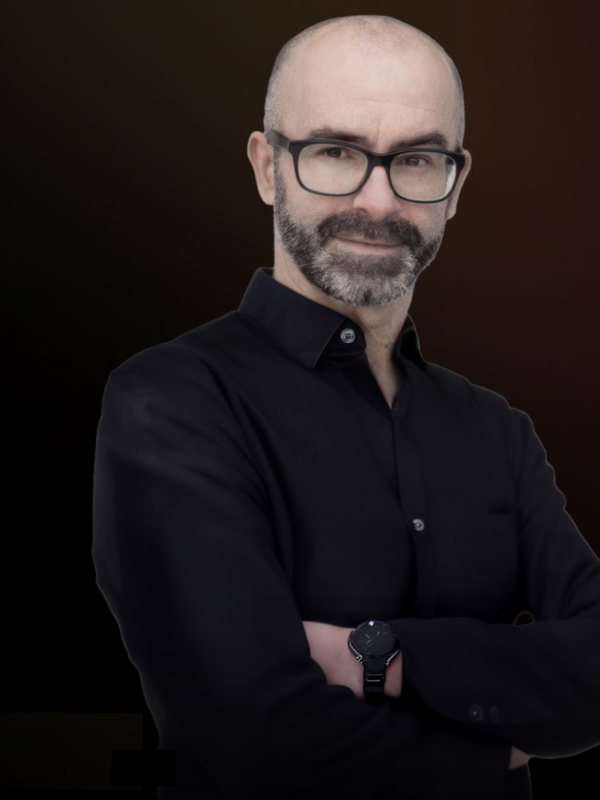
Allen
Jellas

A dynamic and results-driven transformation leader with over two decades of
experience driving strategic change across industries, including business
management, telecommunications, IT security, logistics & shipping, pharmaceuticals,
and fintech.
Proven ability to lead complex transformations, optimize organizational agility, and build high-
performing, collaborative cultures that drive sustainable success.
Passionate about leadership development and cultural transformation, he empowers organizations to
embrace agility as a mindset and behavior. He fosters psychological safety, continuous improvement, and
cross-functional collaboration to ensure teams remain engaged, resilient, and adaptable
Agile is everywhere. Everybody is talking about it. Everybody wants to start the agile journey with
the various agile frameworks. And then, many hit the ceiling and give up the agile journey
altogether.
In this interactive session, I’ll share my story of how we started with understanding the
organizational culture first and then brought agility that sustained.
By the end of the session, you will:
• learn where to start when bringing agility into the organization.
• become aware of why it is important to have a systemic view when bringing agility into the
organization.
• get introduced to a model to identify your current and desired organizational culture.
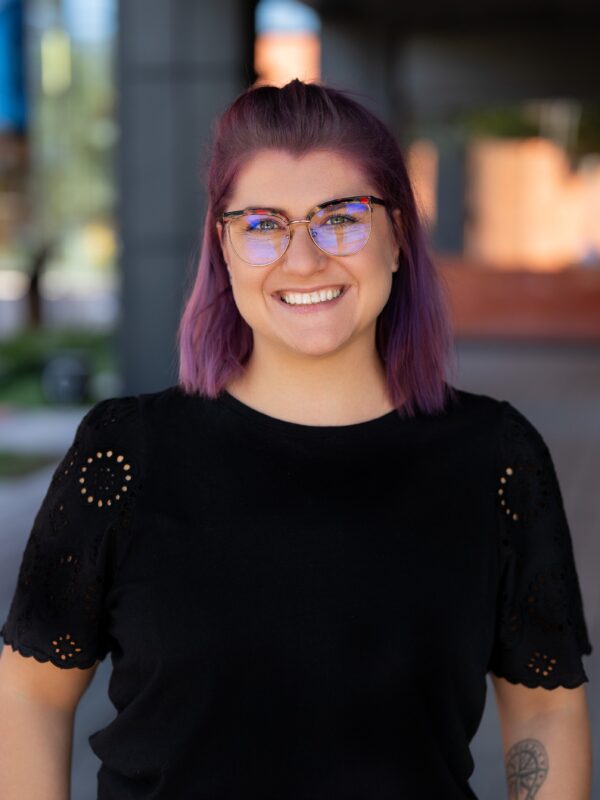
Kaja
Kalmus

Agile Coach, Antifragile Podcast Host, Strong believer of customer centricity, bringing Agile into different fields from schooling to event management. Zouk Dancer & Dogs Mum.
From its inception in 2001, Agile was all about responding to client’s needs – by setting up proper framework of communication and mindset of adaptiveness and responsiveness.
All that was far from ‘effective’. It implied frequent and personal communication, welcoming change to the requirements. Ever changing requirements led to common misconceptions: Agile = Chaos? Speed = Effectiveness?
We want to talk about how we moved from “adaptiveness” to “effectiveness” discussions and…how Agile can actually help with more effective approach to doing business.

Ewa
Koprowska

Ewa Koprowska is an experienced agile leader with over 25 years in the technology industry, having supported organizations such as PZU, ING, Shell, and Bupa. She has held diverse roles, including actuarial developer, analyst, project manager, Scrum Master, Product Owner and Global Agile Coaching Services Manager, giving her a broad perspective on product development, governance, and scaling agility.
Currently, Ewa is a Continuous Improvement Manager at SmartRecruiters – The Recruiting AI Company, where she helps teams and leaders navigate complexity and drive meaningful change. She is passionate about balancing governance with agility and is actively translating into Polish Govern Agility book by Ponton and Gadzinski to bring its principles to a wider audience.
Ewa is a strong advocate for clarity, transparency, and continuous improvement. She actively contributes to the agile community by sharing her knowledge and experience through lectures, workshops, and mentoring.
Agility thrives in teams, but how do we make it work at scale without crushing its essence with bureaucracy? In this talk, I will share five real-world stories of organizations that have attempted to embed agility while struggling with governance, leadership, and legacy structures.
Using the Govern Agility book by Ponton and Gadzinski as a lens, we will explore the five stanchions—Conductive Leadership, Sensible Transparency, Patterns of Work, Data-Driven Decision-Making, and Humanity. Through success stories and cautionary tales, I will illustrate how organizations can create sustainable agility that is governed effectively yet remains adaptable and human-centered.
This session is for leaders, practitioners, and change agents who seek a practical, experience-based perspective on balancing structure and flexibility in agile organizations. Expect an engaging, story-driven presentation with insights you can take back to your teams and leadership.
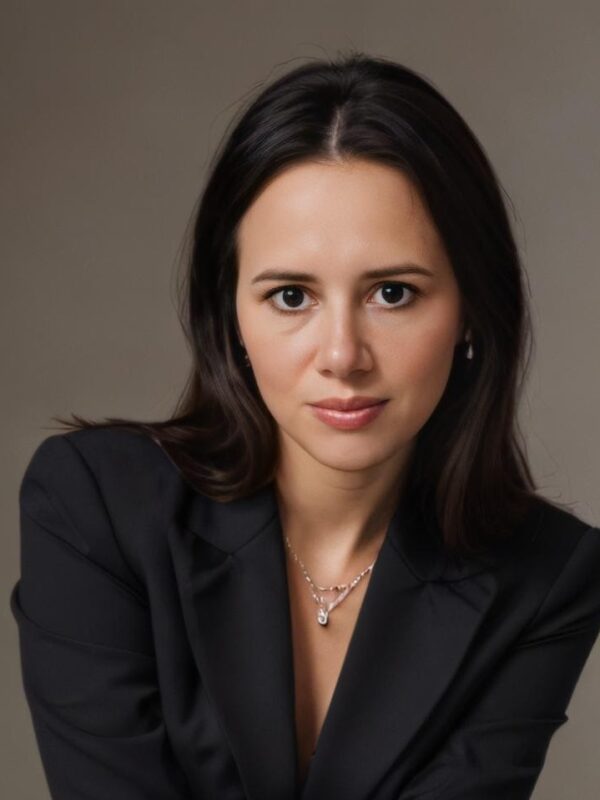
Agata
Kozicka

I have been working in the IT industry since 2013. Currently, I hold the position of Senior Project Manager at a Krakow-based software house, where I manage projects in areas such as fintech, foodtech, e-commerce, education, social, and more, collaborating with clients from Saudi Arabia, Western Europe, and the United States. I am a certified Scrum Master and Facilitator, as well as the author of the blog zwinna.com, where I share my knowledge about agile work methodologies and project management in the IT industry.
My professional interests focus particularly on building effective relationships in multicultural teams and managing cultural differences in business. Working with people from diverse cultural backgrounds is not just a challenge for me but also a great opportunity to enrich a dynamic work environment. I am also involved in optimizing project management processes and utilizing metrics in agile software development. Additionally, I closely follow the development of artificial intelligence and strive to combine my experience with a drive for innovation in IT.
This presentation explores how cultural differences affect the efficiency of IT projects, both in international teams and when working with foreign clients. We will address challenges that arise not only when collaborating with culturally distant regions but also with countries perceived as culturally close, such as the UK, or the USA. Understanding these differences is crucial for improving cooperation.
The presentation is based on case studies and real-world examples illustrating the impact of cultural differences on IT projects. It introduces Erin Meyer’s Eight Dimensions of Culture model, a practical tool for managing cultural diversity effectively.
Participants will gain actionable strategies to navigate cultural differences and enhance collaboration in international teams and IT projects. They will learn how to leverage cultural diversity to benefit project outcomes. The insights shared will be valuable for IT professionals—from developers to project managers—engaged in global cooperation. A deeper understanding of cultural differences will contribute to more efficient project execution, improved client relationships, and greater business success.
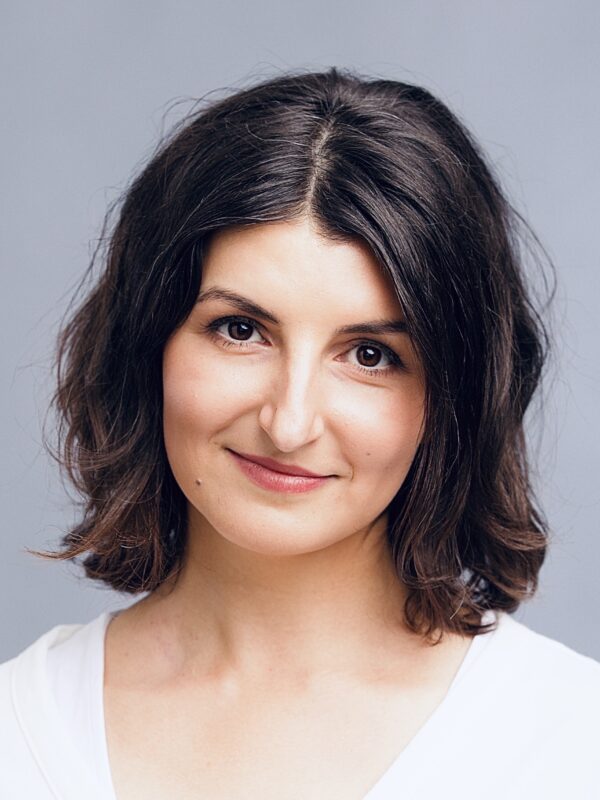
Agnieszka
Leleno

Agnieszka is a Product Designer at Motorola Solutions, working to provide the best possible experience for our customers through Radio Central Programming—a platform that helps public safety teams stay connected in critical moments with reliable radio communication. She focuses on simplifying the workflows of radio programming and creating clear, user-friendly interfaces, which are essential for public safety technicians.
Before joining Motorola Solutions, Agnieszka worked as a UX/UI Designer at Evionica, where she handled equally complex tasks. She was responsible for designing software for aircraft load management, which is critical for the safety of passengers and flight performance.
With a strong foundation in visual arts and data-driven design, she continuously strives to align user needs with technical requirements and business goals.
We’ll share practical, real-world strategies for bridging the gap between development and user experience, even if you haven’t collaborated with a UX team before or are looking to enhance current efforts. Learn how to identify and overcome resistance to UX adoption, understand team dynamics, and effectively advocate for User-Centered Design.
Discover how a dedicated UX team, or improved internal UX practices, can significantly impact your Agile process, boosting efficiency and delivering superior products.
We’ll showcase our internal success stories demonstrating the transformative power of UX on team performance and product quality. You will gain actionable insights into fostering a UX-centric culture, leading to improved collaboration and streamlined processes.
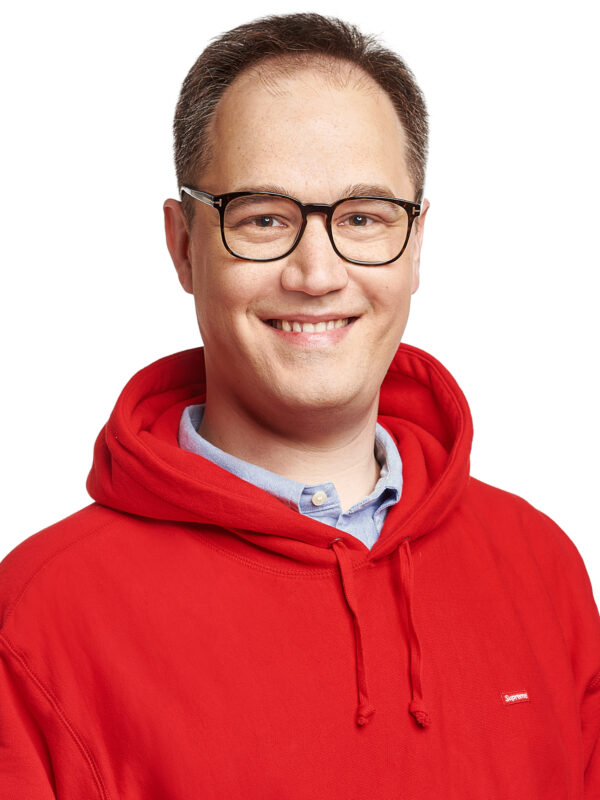
Tomasz
Maj

Tomasz Maj is an experienced tech leader with over 14 years in software development. His expertise lies in leadership coaching, change management, team performance, and capability building. He has worked with clients across banking, telecom, and insurance sectors on four continents. Throughout his career, he has trained over 1,000 professionals, supported 200+ teams, and collaborated with 20+ leadership teams. Recently, he transitioned from consulting to join Odevo, a global property tech company, where he holds a dual role: Head of Product Operations and Head of Development for the Nordics.
In today’s world, where data and information are easily accessible, it’s easy to feel overwhelmed. How do you know where to focus your energy and where to begin when identifying problems? The answer is simple: Cycle Time—the speed at which you complete the work you start. In this talk, I will explain why everything begins with Cycle Time, how it naturally generates improvement opportunities, and how it uncovers new areas for deeper exploration.
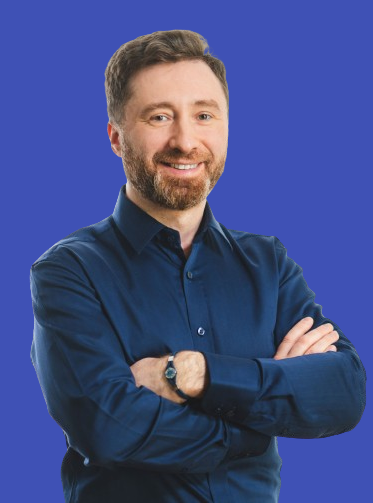
Tomasz
Manugiewicz

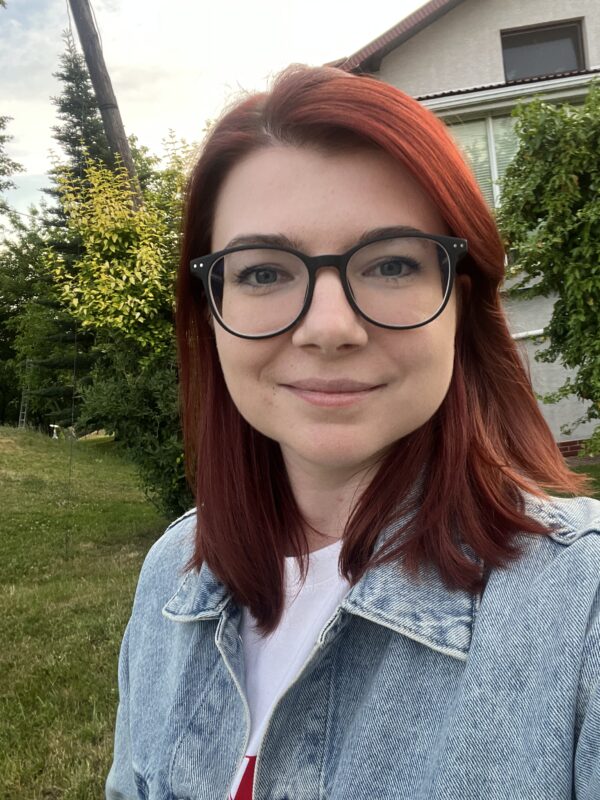
Daria
Markowska

Agile enthusiast and Scrum Master at Motorola Solutions with 3 years of experience.
I’m passionate about injecting agility into organizations and fostering collaborative, high-performing environments. I love designing and delivering fun, interactive workshops that make learning engaging. My favourite question: “Why?”
When I’m not guiding sprints, you’ll find me exploring virtual worlds and conquering challenges in the realm of video and VR gaming.
How are quantum physics and agile methodologies similar, if at all, and does the simple process of observation enhance productivity? We conducted several experiments and aim to discuss whether the presence of an observer alters the outcomes of these experiments.
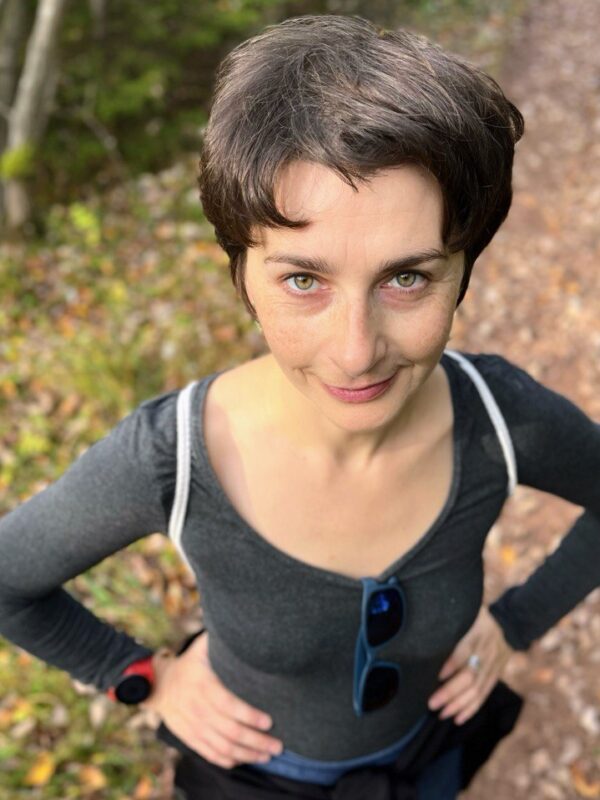
Olena
Miroshnichenko

My journey in the IT industry began ~15 years ago and continues to evolve through exploration, learning, successes, and setbacks—all of which make this adventure enriching. I’m currently a Scrum Master, wearing many hats—facilitator, trainer, mentor, and coach—helping my teams and organization establish, transform, and enhance culture and processes in IT development. In my current job, I run local community of practice, have organized an internal conference, plenty of workshops and got many awesome ideas to bring into life! Last year started speaking at events like PMExcellence (Luxoft) and Kanban Day Poland. And here I’m to talk why words matter—because the way we use language shapes the way we think, and the way we think shapes everything else. Let’s dive in!
LinkedIn: https://www.linkedin.com/in/olena-miroshnichenko-120b1b16/
Words aren’t just labels. They’re lenses. They shape how we perceive reality. If we misuse words, we cloud our thinking, we misdiagnose problems and chase the wrong goals. Words shape how we think, and how we think, shapes how we act. They influence our decisions, our interactions, and the systems we create. Precision in language isn’t just about clarity—it’s about making better choices and driving meaningful change.
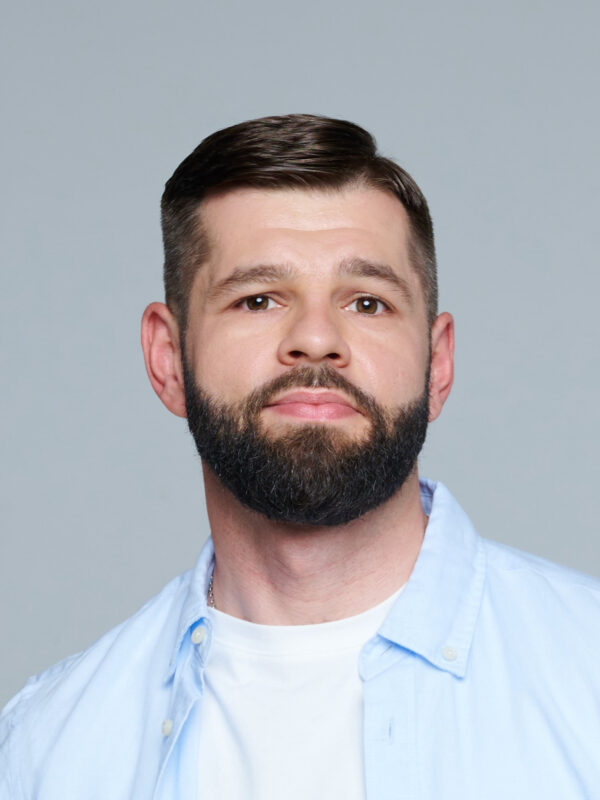
Denis
Salnikov

Denis Salnikov is an Org Design and Agility Coach based in Krakow. Being a Professional Scrum Master, Kanban Coach & LeSS Practitioner, he has been working with development teams and company leaders since 2014. Denis has taken an active part in multiple Agile transformations and organised Product development scaling at various startups and enterprises in Europe, North Africa and the US, including “unicorn” startups N26 (Germany) and PandaDoc (USA), and the leading super app in the Maghreb region Yassir (Algeria).
Effective team assessments can drive alignment and improvement, but poorly designed ones can create mistrust, distort progress, and deliver misleading insights. Drawing on my experience with well-known companies—from big banks to unicorn startups—I’ll share key principles, my set of Dos and Don’ts, and a few cautionary tales of unintended consequences.
Together we’ll explore how to balance objective data with subjective insights, highlighting the value each brings to understanding team dynamics. I’ll also share my approach to analyzing assessment outcomes in a way that produces valuable insights not only in a specific team but also enables conscious systemic interventions across the entire organization.
Join me to explore the good, the bad, and the ugly of team assessments—and how to make yours truly impactful.
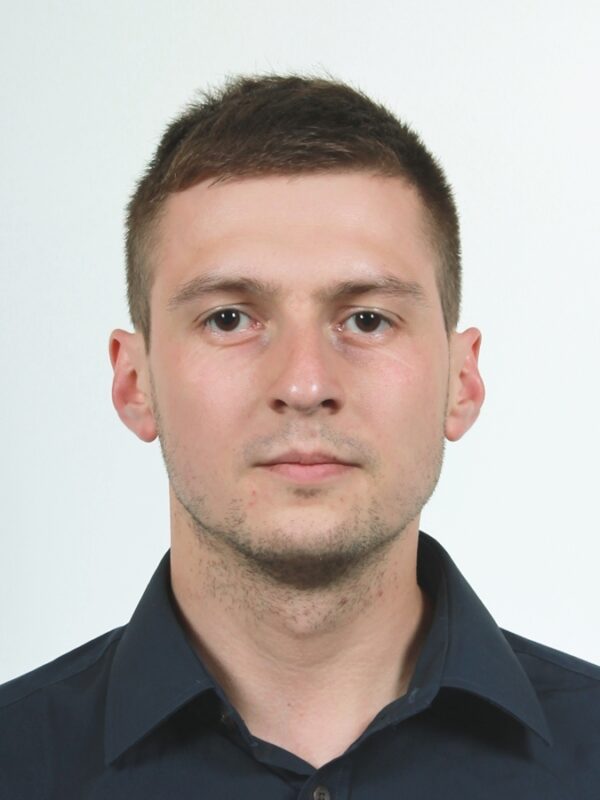
Piotr
Ślusarczyk

An experienced software engineering manager with a background in DevOps and technical leadership roles. I prioritize fostering a collaborative environment and empowering team members. With a solutions-oriented mindset and a positive outlook, I embrace challenges as opportunities for growth.
How are quantum physics and agile methodologies similar, if at all, and does the simple process of observation enhance productivity? We conducted several experiments and aim to discuss whether the presence of an observer alters the outcomes of these experiments.
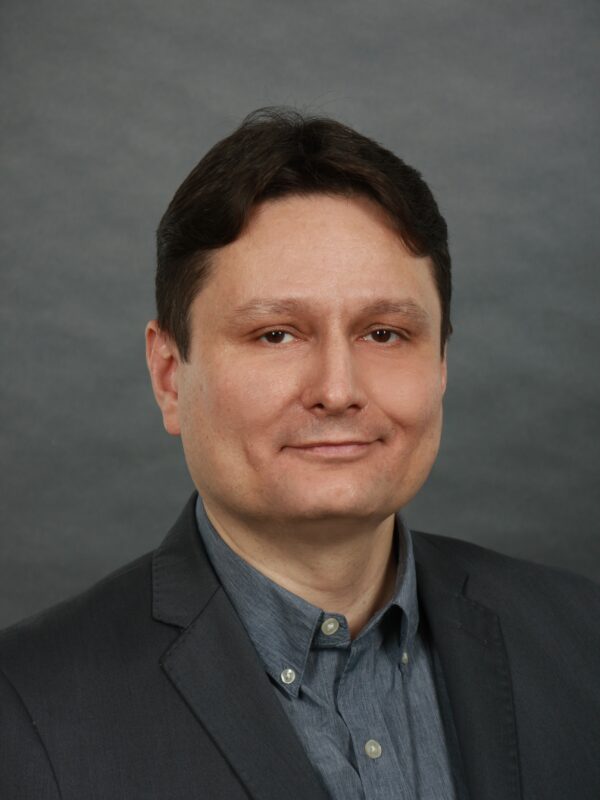
Marek
Stochel

Marek is an engineering leader in Motorola Solutions with a background in software development. Throughout his career he developed observability solutions in the ICT industry, led teams on mission-critical projects across Network Management, Dispatch Console Solutions, Broadband Push-to-Talk, and Video Management. His technical acumen and practical application of academic research have led to earn a doctorate from AGH University of Krakow in 2024. He specializes in software engineering: adaptive processes, iterative software development, and technical debt management.
How to manage technical debt? The natural tension between the software craftsmanship, which values pride in well-done work, and short-term business goals is real. And painful.
But, there is a solution. We can establish a common ground for technical debt management using the Continuous Debt Valuation Approach (CoDVA).
Let’s explore building a common understanding, implementing the model, and reviewing the results of a three-year journey with CoDVA. This approach has enhanced engineering speed and predictability, reduced product stabilization efforts, and ultimately improved developers’ satisfaction.

Polina
Sushko

We’ll share practical, real-world strategies for bridging the gap between development and user experience, even if you haven’t collaborated with a UX team before or are looking to enhance current efforts. Learn how to identify and overcome resistance to UX adoption, understand team dynamics, and effectively advocate for User-Centered Design.
Discover how a dedicated UX team, or improved internal UX practices, can significantly impact your Agile process, boosting efficiency and delivering superior products.
We’ll showcase our internal success stories demonstrating the transformative power of UX on team performance and product quality. You will gain actionable insights into fostering a UX-centric culture, leading to improved collaboration and streamlined processes.

Mateusz
Trawiński

Senior Engineering Manager at SimCorp. Always interested in team dynamics, organisational design and value delivery. Experienced Scrum Master, researcher and leader. Passionate about Agile Ways of Working since 2016. In love and hate relationship with Scrum since 2018. Co-author of two books and multiple articles in organisational research, game theory and sociology. Alumni of Poland’s most prestigious acceleration programme dedicated to future tech entrepreneurs and visionaries – PFR School of Pioneers. Rock and alpine climber.
Recent changes in the software development industry – like the widely discussed “death of agile” and massive layoffs in tech companies – may suggest that there is something disturbing in the very core of either the discipline or the business. In software development DDD is an abbreviation which stands for Domain-Driven Development. In this lightning talk I will suggest a different understanding of the first “D” – highlighting six popular delusions of our industry that hurt it alot in the recent years. I will also suggest how we can move beyond them to build both – great software and great software companies. Six delusions are as follows:
The Agile Delusion
The Process Delusion
The Mindset Delusion
The Manager Delusion
The Leadership Delusion
This talk is a quick exercise in becoming disillusioned and fixing the way we work!
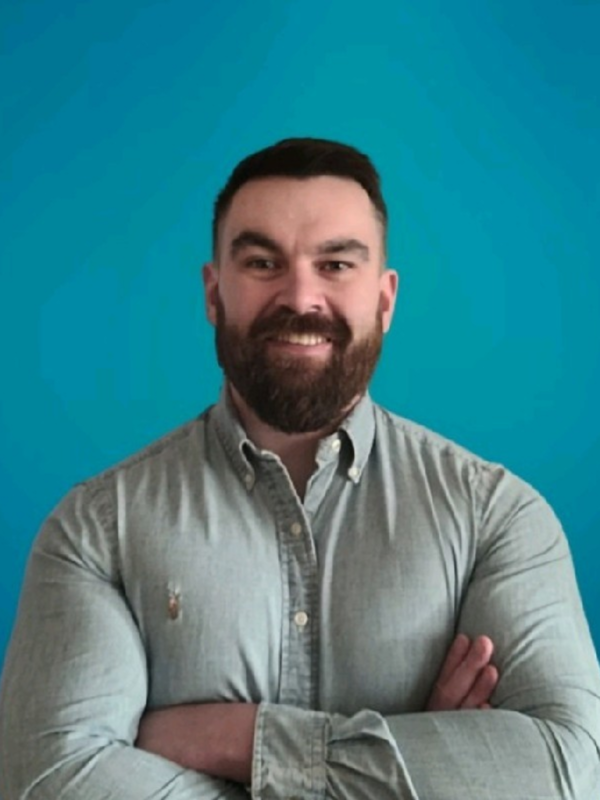
Dave
Westgarth

Dave works as Delivery Manager at BJSS and has held numerous roles and built up an extensive experience in agile delivery and tech, with positions ranging from developer to manager across several industries. He’s an active advocate of agile and works to enhance teams and workplaces by promoting agile ways of working, principles and values.
In this session, you’ll explore how cinematic theory can transform your Agile retrospectives. Together, we’ll dive into the four possible “endings” teams experience drawing insights from iconic film narratives. You’ll gain actionable strategies to diagnose retrospective outcomes, enhance team engagement, and drive continuous improvement. By incorporating storytelling techniques from film, you’ll discover how to create more positive retrospectives, align your team, and refine your retrospective practices. Join for a collaborative experience that will leave you with fresh perspectives and practical tools to elevate your retrospectives and create more sweet endings!
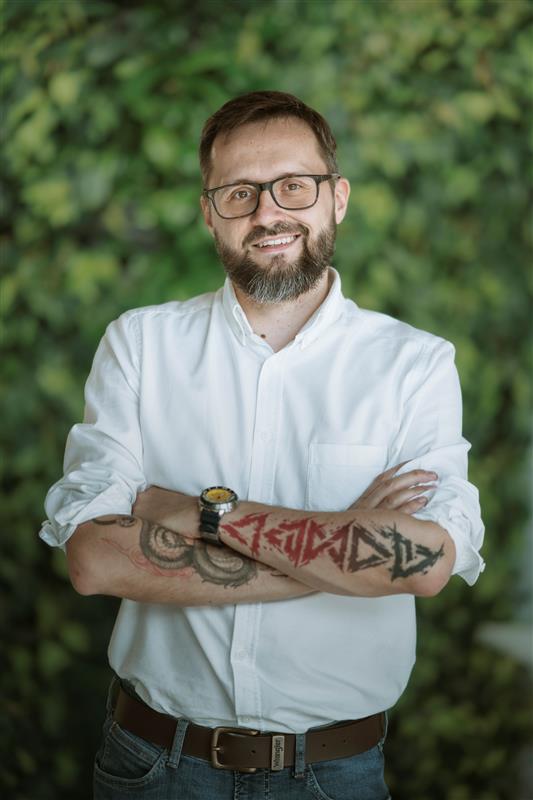
Tomasz
Wilk

Agile Coach, Effectiveness Consultant, Kaikaku enthusiast. Worked for American, Chinese, British and Dutch corporations, learning firsthand that culture indeed follows structure. Father of One. Nerd. Cause This is the Way.
From its inception in 2001, Agile was all about responding to client’s needs – by setting up proper framework of communication and mindset of adaptiveness and responsiveness.
All that was far from ‘effective’. It implied frequent and personal communication, welcoming change to the requirements. Ever changing requirements led to common misconceptions: Agile = Chaos? Speed = Effectiveness?
We want to talk about how we moved from “adaptiveness” to “effectiveness” discussions and…how Agile can actually help with more effective approach to doing business.
Paweł
Zajączkowski
Paweł has been working in Wrocław IT since 2009. He was digging through the code in a Finnish telecom, German logistics, a Swiss bank, a car factory, a travel startup, British compliance, and villa rental. Currently, he has gone to the dark side and takes care of a flock of programmers and team leaders, a mentoring program, a guild and is sticking his nose wherever else he can.
Personally, he likes to read, play board games, analog and computer RPGs. He practices powerlifting and collects vintage Lego Technic. Writes about software, peopleware and dragons on HowToTrainYourJava.com.
Have you ever been in a project that resembled a haunted mansion straight out of a horror story?
This talk will guide you through the old ghosts of bad decisions, countless bodies falling out of the closet, voices whispering conflicting requirements, ancient code, gargantuan monoliths deep down in the dungeons, enigmatic figures in suits, scrolls with cryptic documentation, a mummy wrapped in bureaucratic papers, micromanaging puppeteers, sense of impending doom and a constant struggle between autonomy, mastery and purpose
Even if there is no easy way out, we can fight the monsters or befriend them together. Stay and listen, adventurers.
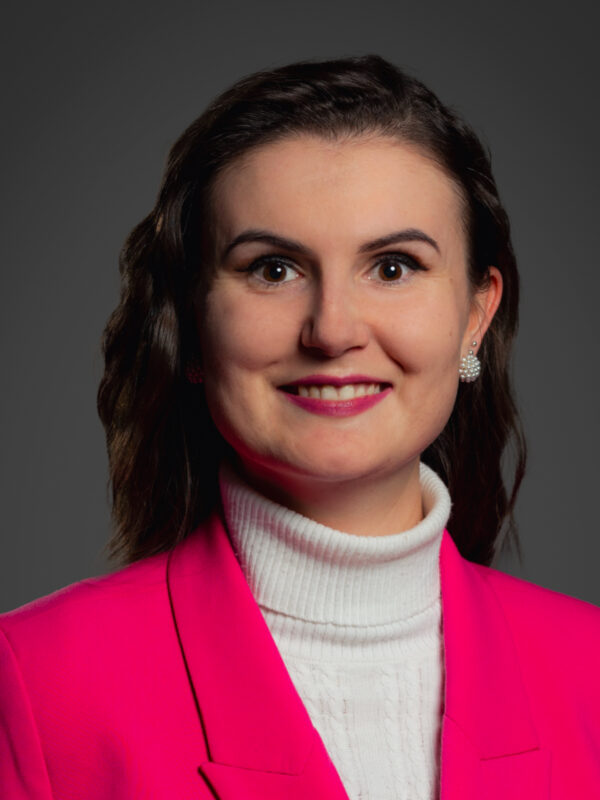
Urszula
Zemlińska-Sikora

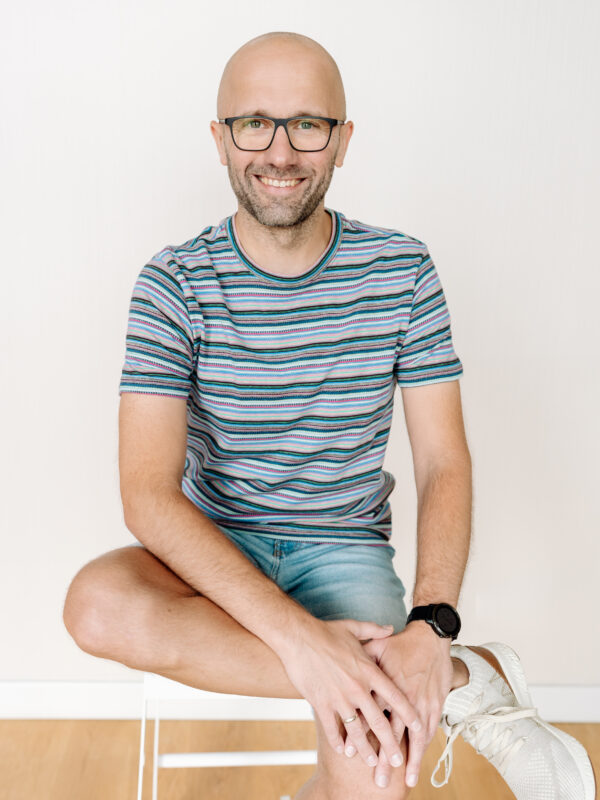
Jakub
Dobosz

I practice NVC (Nonviolent Communication) and enhancing mindfulness. I value the synergy provided by a team, transparency, and effective communication. I focus on business value and finding ways to deliver it optimally. I believe that by continuously deepening our understanding of our own needs and motivations, we can create exceptional solutions. One of my goals is to build environments where everyone feels a sense of ownership and has the opportunity to influence its shape.
For over 12 years, during my adventure at eLeader Group, I have progressed from being a team member to managing a department of over 100 people responsible for building and implementing mobile banking solutions. Since 2020, I have been working with start-ups as a product manager at Pragmatic Coders.
Lead with purpose, adapt with agility, and deliver results that matter.
Being effective in the fast-changing world means using tools and approaches that suit best given situation. Thanks to various styles of leadership, we can adopt to use our team’s full potential. Discovering how to lead with clarity, adaptability, and purpose is a key factor of the success.
This workshop (The Leadership Game) is perfect for leaders or leaders-to-be who want to build their effectiveness, sharpen their ability to adapt, and lead teams to sustained success. Through interactive activities and reflective discussions, you’ll leave with a renewed perspective and practical insights to enhance your leadership journey.
Key takeaways:
– a reflection on when and why a given leadership style is most effective
– an experience in seeing yourself as a team member in various leadership styles
– exploring team effectiveness through various perspectives
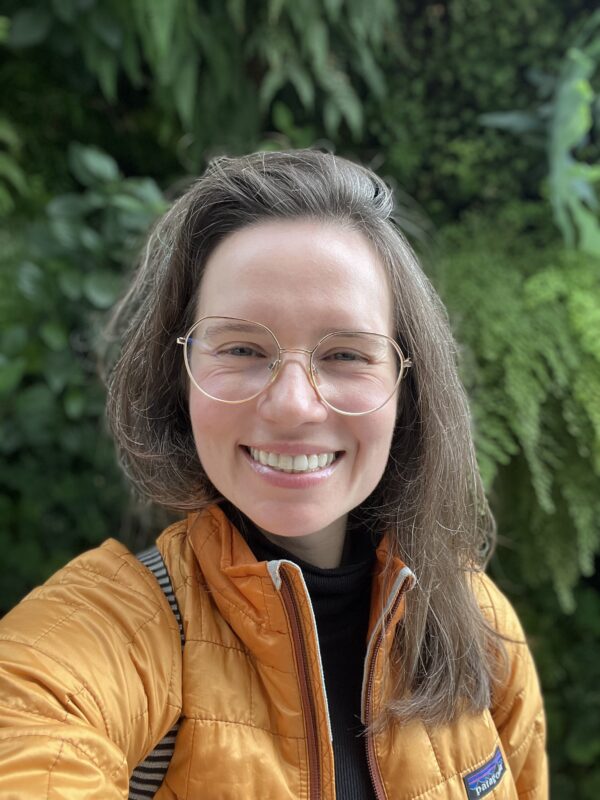
Weronika
Ilczyszyn

Throughout my career, I’ve been collecting experience as a configuration manager, scrum master, and project lead. I’m particularly passionate about visual thinking, evidence-based management, public speaking, and—as this workshop demonstrates—sketchnoting. When I’m not working, I immerse myself in books or manga, savor coffee, and constantly seek out new music to explore.
Two years ago, I discovered a new way to take notes during meetings, workshops, and talks—sketchnoting. I now use sketchnoting and graphic facilitation whenever possible because it helps me and others stay engaged and easily access key facts, examples, and ideas. This workshop will cover:
1. The basics of sketchnoting and graphic facilitation.
2. Simple drawing techniques to enhance your notes.
3. How to use sketchnoting for more efficient learning and facilitation.
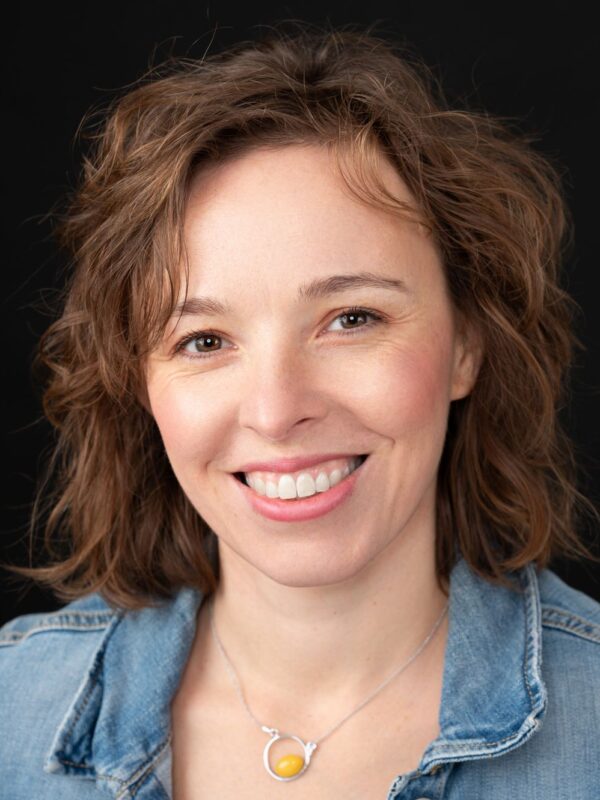
Małgorzata
Kowalczewska

For almost 10 years I have been working with people individually and in teams, helping them discover effective ways of working that suit them best. For 7 years I worked in the IT industry as a Scrum Master and Agile Coach, supporting organizations and teams in finding effective work methods and building agreements between the business and product side.
I provide coaching, mentoring and training in the field of authentic leadership, effective communication and conflict resolution. I believe in agile work methodologies and an approach based on trust.
I love traveling, hiking, skiing, roller skating and practicing yoga. When I have a moment to myself, I read books and practice mindfulness.
Conflicts are a natural part of both work and life, and avoiding them often leads to stress, burnout, and hidden frustration. In Agile teams, where communication is key, disagreements are common — and necessary for growth. But are we using these conflicts effectively, or are we allowing them to undermine our work?
Consider these scenarios:
As a product team, you have implemented a great feature, but the sales team can’t sell it and you hear from them: “You don’t understand that the sales process in such companies is complicated and long.”
As a sales team, you build strong client relationships and work hard to promote an unknown, cutting-edge product. Meanwhile, the development team seems overwhelmed, telling you, “It’s not about adding more features, but about truly understanding customer needs.”
These situations show how easily conflicts can arise between teams because of different understanding of the same issue.
In this workshop, we’ll explore practical strategies to prevent these moments from escalating. You’ll gain fresh perspectives on conflict, see how arguments can lead to discovery, and practice constructive approaches for navigating future confrontations with confidence.
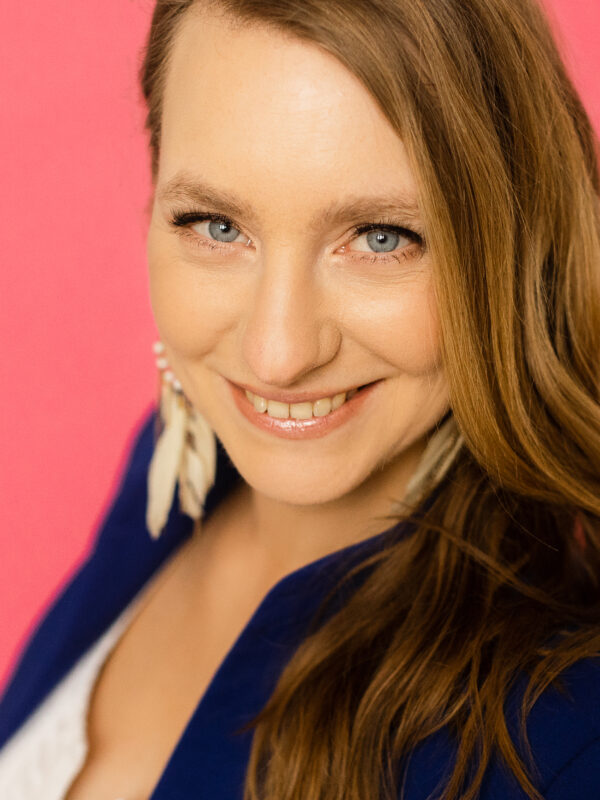
Magdalena
Kucharska

Magdalena is an Agile Coach and a Scrum Master, with more than 10+ years of experience in various business fields, such as: engineering, aviation, banking, gambling, MLM.
Her main focus is the quality of Product and responding to the needs of clients. She loves to facilitate Scrum trainings, as it is her way of showing its worth. She does it with easiness and humor, including multiple real-life stories, to help students understand the empiricism behind Scrum.
Privately a TV-series nerd, with over 368 show watched, with currently 60 in production. Proud mom of one and passionate fantasy and sci-fi reade
Mentoring is a powerful, partnership-driven process aimed at unlocking and developing the mentee’s full potential. This short introduction training provides a comprehensive introduction to mentoring, exploring its historical roots, key differences from coaching, and the essential skills required for effective mentorship. Participants will gain hands-on experience in setting mentoring goals, navigating the mentoring process, and applying best practices in communication, feedback, and personal development. Through interactive exercises, and real-world case studies, attendees will learn how to become impactful mentors who inspire growth, self-confidence, and career advancement in their mentees.
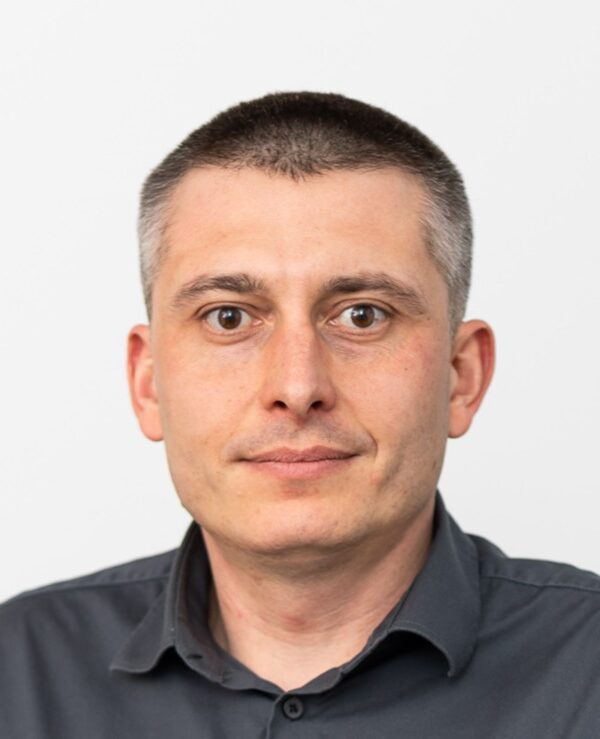
Marcin
Lelek

An experienced leader, Agile Coach, professional trainer, and facilitator. Focused on making good teams great. Leads by example by getting the right things done, continuous curiosity, and teamwork. He knows a wide set of tools and techniques for improving the team’s effectiveness and is experienced in using them. During his professional career he helped multiple teams to increase their agility and maturity levels.
This interactive workshop will explore the multifaceted nature of change and its impact on us. We will explore our emotional responses to change and discuss how to navigate these challenges constructively. Participants will learn to identify a few different coping mechanisms and develop strategies for embracing change as an opportunity for growth and learning. The workshop will emphasize self-reflection and encourage participants to cultivate a mindset that fosters resilience and adaptability while facing uncertainty.
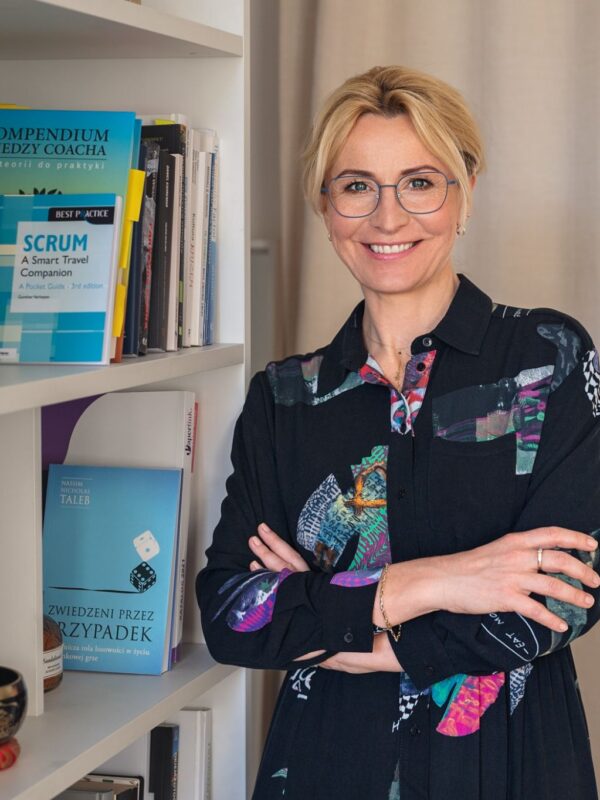
Marta
Orbitowska

Od lat wspieram biznes i edukację w rozwijaniu kultury współpracy, innowacji i ciągłego doskonalenia. Mam ponad 20 lat doświadczenia zawodowego – od inżynierii jakości, przez zarządzanie procesami, po rolę Scrum Masterki, Agile Coacha i mentorki w IT. Jestem akredytowaną w EMCC Coach i Mentorką oraz ekspertką MindSonar®. Wspieram organizacje w budowaniu środowisk sprzyjających eksperymentowaniu, uczeniu się i dostarczaniu wartości. Pomagam zespołom IT oraz liderom biznesowym wdrażać Scrum, Kanban, LeSS i myślenie systemowe. Angażuję się także w transformację edukacji poprzez eduScrum®. Wierzę, że Agile to nie tylko zestaw narzędzi, ale sposób myślenia, który pozwala lepiej reagować na zmieniający się świat.
Ekspertka MindSonar® Polska. Akredytowana Coach i Mentorka w EMCC Global. Pionierka i trenerka eduScrum® w Polsce Change Manager @PROSCI
W świecie, w którym zwinność stała się standardem, pojawia się kluczowe pytanie: czy Agile nadal jest odpowiedzią na wyzwania efektywności? Ten warsztat rzuca nowe światło na Agile, analizując jego skuteczność z perspektywy Dynamiki Spiralnej, kultury organizacyjnej oraz mindsetu zespołów.
Podczas sesji odkryjecie, jak poziomy świadomości wpływają na zwinność organizacji oraz jakie mechanizmy mogą wspierać lub hamować skuteczność Agile. Przeanalizujemy także rolę liderów i menedżerów jako katalizatorów zmiany, wykorzystując model PROSCI (ADKAR i CLARC) do skutecznego zarządzania transformacją.
Dzięki ćwiczeniom i wymianie moich i Waszych doświadczeń:
To warsztat dla tych, którzy chcą spojrzeć na Agile nie jako zestaw praktyk, ale jako system adaptacyjny, który może ewoluować wraz z zespołami i organizacją.
Event language: polish
W świecie, w którym zwinność stała się standardem, pojawia się kluczowe pytanie: czy Agile nadal jest odpowiedzią na wyzwania efektywności? Ten warsztat rzuca nowe światło na Agile, analizując jego skuteczność z perspektywy Dynamiki Spiralnej, kultury organizacyjnej oraz mindsetu zespołów.
Podczas sesji odkryjecie, jak poziomy świadomości wpływają na zwinność organizacji oraz jakie mechanizmy mogą wspierać lub hamować skuteczność Agile. Przeanalizujemy także rolę liderów i menedżerów jako katalizatorów zmiany, wykorzystując model PROSCI (ADKAR i CLARC) do skutecznego zarządzania transformacją.
Dzięki ćwiczeniom i wymianie moich i Waszych doświadczeń:
To warsztat dla tych, którzy chcą spojrzeć na Agile nie jako zestaw praktyk, ale jako system adaptacyjny, który może ewoluować wraz z zespołami i organizacją.
Event language: polish
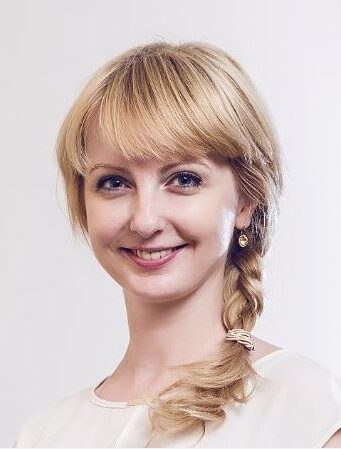
Olena
Pashnina

Olena is a co-organizer of Liberating Structures meetups in Krakow. She loves to experiment with different techniques to foster an environment for teams to experiment, engage and discover new ways to collaborate more effectively.
What does she do?: Olena is an Agile Delivery Coach at Pegasystems, helping teams improve communication, resolve challenges, and enhance collaboration to drive better results.
Motto: If you can dream it, you can do it – she draws energy from exploring new places, meeting inspiring people, and… leading workshops and coaching teams!
After work?: She enjoys discovering new ideas and connecting with like-minded individuals to share experiences and insights.
Are you drowning in endless meetings that leave little room for meaningful work? Join us for “Escape Meeting Overload: Make Time for What Matters with Liberating Structures”, an engaging workshop designed to help you reclaim your time and refocus on what truly matters.
You’ll learn how to use Ecocycle Planning, a Liberating Structures technique, to assess your meetings, clear unnecessary ones, and create space for value-driven work. Through practicing Impromptu Networking and 15% Solutions, you’ll connect with others, gain practical tools, and define actionable steps to optimize your calendar.
This workshop empowers you to reshape your workday, ensuring your time is spent where it counts most. Leave with a clearer schedule and techniques you can apply immediately.
Let’s rethink how we work!
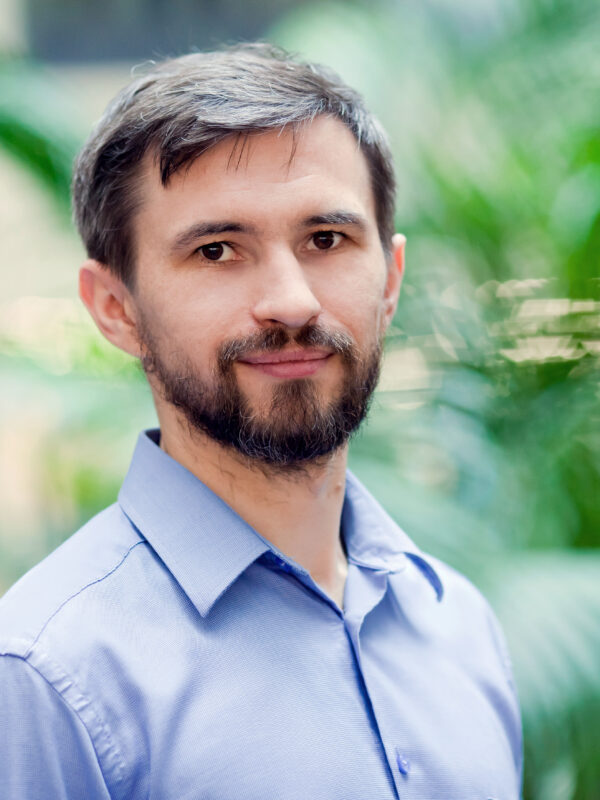
Tomasz
Serafin

I am an experienced software developer and servant-leader of a Scrum team, with extensive expertise in various roles related to software development and project management. I began my career as a developer and, over the years, expanded my skill set by taking on roles such as analyst, project manager, product manager, team leader, and Agile Coach. Currently, as a lead developer, I focus on delivering value through modern technologies and Agile practices.
I am passionate about deepening understanding and simplifying complexity, and one of my hobbies is designing and conducting workshops that help others gain a better grasp of both the technical aspects of programming and Agile ways of working. With my broad experience and hands-on approach, I seamlessly bridge these two worlds, making complex concepts more accessible.
Lead with purpose, adapt with agility, and deliver results that matter.
Being effective in the fast-changing world means using tools and approaches that suit best given situation. Thanks to various styles of leadership, we can adopt to use our team’s full potential. Discovering how to lead with clarity, adaptability, and purpose is a key factor of the success.
This workshop (The Leadership Game) is perfect for leaders or leaders-to-be who want to build their effectiveness, sharpen their ability to adapt, and lead teams to sustained success. Through interactive activities and reflective discussions, you’ll leave with a renewed perspective and practical insights to enhance your leadership journey.
Key takeaways:
– a reflection on when and why a given leadership style is most effective
– an experience in seeing yourself as a team member in various leadership styles
– exploring team effectiveness through various perspectives
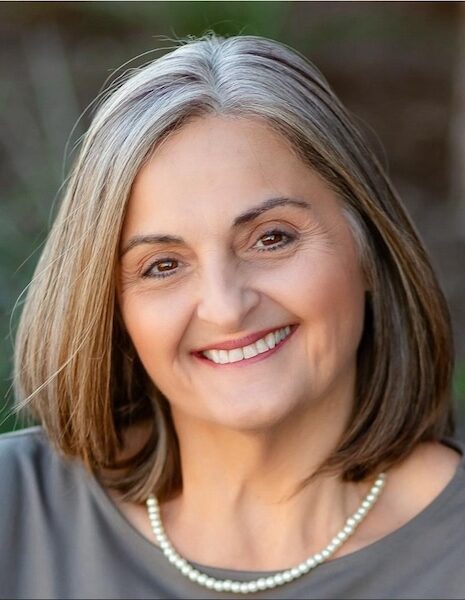
Cherie
Silas

I am an executive and leadership coach focused on helping clients achieve the successful
outcomes they desire in their personal and professional lives. I help leaders focus on developing
confidence, skills, and executive presence. I work with motivated high achievers, many who
have ADHD to focus on conquering their world.
I am an ICF Master Certified Coach (MCC), Certified Enterprise Coach (CEC), Certified Team
Coach (CTC), Certified Organizational Relationship Systems Coach (ORSCC), and Certified
Human Systems Coach (TCA-CHS). I have a strong desire to help people arrive at the place they
define as success in both personal and professional life. My goal is to invest the experience and
talent I have gathered through years of learning, often-times the hard way, into people whom I
hope will become greater than I can ever dream to be. I firmly believe that my ceiling should be
your floor!
I have a deep background in organizational management across multiple domains and have
served in executive level management roles with multiple Fortune 500 companies. I have a
proven track record of people development and have worked as a consultant assisting several
Fortune 500 clients with large organizational culture transformations.
This interactive session explores the power of constellation coaching in working with human
organizational systems and subsystems. Participants will learn and experience hands-on
exercises, including tabletop and physical constellations, to help clients visualize system
dynamics, uncover challenges, and identify paths forward. By the end of the session, attendees
will gain practical tools to facilitate systemic coaching conversations and drive meaningful
change in teams and organizations.
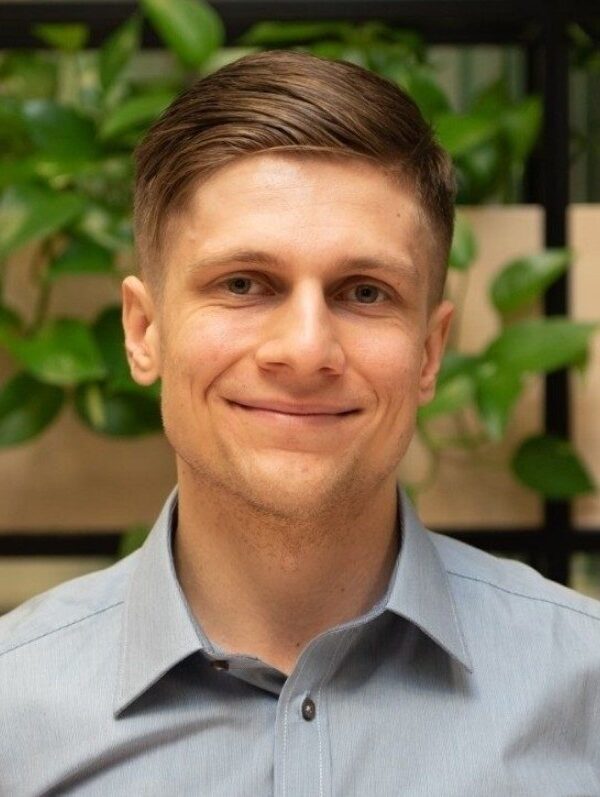
Michal
Tarnowski

Michał has been organizing Liberating Structures meetups in Krakow for the past 2.5 years. His passion lies in creating events that provide a safe environment for experimentation and discovering new ways to collaborate effectively as teams.
What does he do?: Michał is a Scrum Master at Ørsted, where he helps teams improve efficiency, make better decisions, and adapt their workflows to fit specific contexts.
Motto: Running & Reading – he finds energy in running, reading, and… leading trainings and workshops!
After work?: He enjoys hiking and running in the mountains
Are you drowning in endless meetings that leave little room for meaningful work? Join us for “Escape Meeting Overload: Make Time for What Matters with Liberating Structures”, an engaging workshop designed to help you reclaim your time and refocus on what truly matters.
You’ll learn how to use Ecocycle Planning, a Liberating Structures technique, to assess your meetings, clear unnecessary ones, and create space for value-driven work. Through practicing Impromptu Networking and 15% Solutions, you’ll connect with others, gain practical tools, and define actionable steps to optimize your calendar.
This workshop empowers you to reshape your workday, ensuring your time is spent where it counts most. Leave with a clearer schedule and techniques you can apply immediately.
Let’s rethink how we work!

